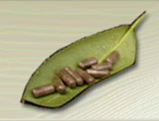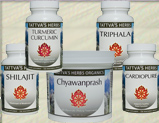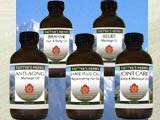 Loading... Please wait...
Loading... Please wait...Introducing Premium Virgin Black Seed Oil
Save 20% Storewide
- Home
- Ayurveda and Addiction
Ayurveda and Addiction
Addictive habits have been a part of society for as long as plants have been growing on the planet. We all know the ugly side of addiction that some people fall into. Substances like drugs, alcohol, tobacco, etc. are not only an individual’s problem, but also affects his/her family, friends, acquaintances, the workplace and society as a whole. The addicted individual experiences financial, physical, psychological, emotional, family, and social problems. All of this suffering creates a spiritual crisis of sorts. Ayurveda can address these issues.
In Ayurveda every human being is considered a combination of both mind and body. The perfect balance of mind, body and soul is considered ideal health in Ayurveda, and is the result of a pure body and selfless mind. There are specific mental treatments in Ayurveda to cure physical problems as well as mental disorders. The mental attitude of a person plays an important role in the curing process. Even modern medical science admits that there is a direct correlation between a healthy mind and a healthy body.
Yoga and meditation are common practices associated with Ayurveda. Yoga is effective not only because of the exercises involved in the practice. There are many types of yoga, and in fact, many yogic practices are not exercise-based, as it has mainly come to be known for recently. Yoga is an ancient form of influencing the mind and achieving mental stability and calmness. It can help a person to control his/her mind and gain perfect psychic balance. With full concentration one can master over his/her mind, cleansing out the impurities. Meditation is another method of dominating the mind. In deep meditation a person gains the power to make the mind follow the commands given. Controlling thoughts is an exercise executed on the psychic level.
There are several Ayurvedic therapies for treating addiction.
Purification Therapies
These are also known as Panchakarma therapies which target at uprooting the toxins present in the patient’s body. Panchakarma is a procedure which finds the cause of the problem and corrects it by balancing the doshas of the body. These are quite potent cleansing therapies, and are generally done under the supervision of an Ayurvedic practitioner.
Virechanam is the therapy which comprises of taking a mixture of herbal medicinal plants or their parts. This therapy eliminates the toxic substances from the body via the intestinal route. Herbs like ginger, turmeric, cardamom, cumin, cinnamon and Embelia etc. are used for this purpose.
Rasayana Therapies
These therapies generally follow the Panchakarma treatments which purify the body. This set of procedures further nourishes and strengthens the body after Panchakarma.
For addiction related problems, Rasayana treatments include dietary changes and consuming oral herbal medicines.
Oral Medication
A range of herbal medicines and combinations are used in the treatment of addictive problems which are meant to be administered orally.
Chamomile and Ashwagandha are two main herbs that are used in combination to heal lungs damaged from smoking. They actually help in removing smoke in the lung and healing the internal tissues. Congestion relieving herbs like ginger and cayenne pepper mixed with honey and lemon are also prescribed for the addiction affected individuals. Mucuna can also be very helpful by revitalizing and balancing the mind. It nurtures a healthy stress response, and helps maximize energy and stamina.
The Ayurvedic type of diet provides the patient with adequate nutrition and plenty of rest to the affected organs, so some dietary regulation is also a powerful tool in such cases. To reduce the dependency or craving of the body for alcoholic drink and other intoxicating substances, herbal substitutes are used which are prepared with elements like turmeric, barberry and ginger. A diet rich in proteins and carbohydrates and low in fats is often recommended. The patient should eat fiber rich food and plenty of raw and steamed vegetables. Intake of coffee and tea, etc. should be reduced and alcohol should not be touched.















